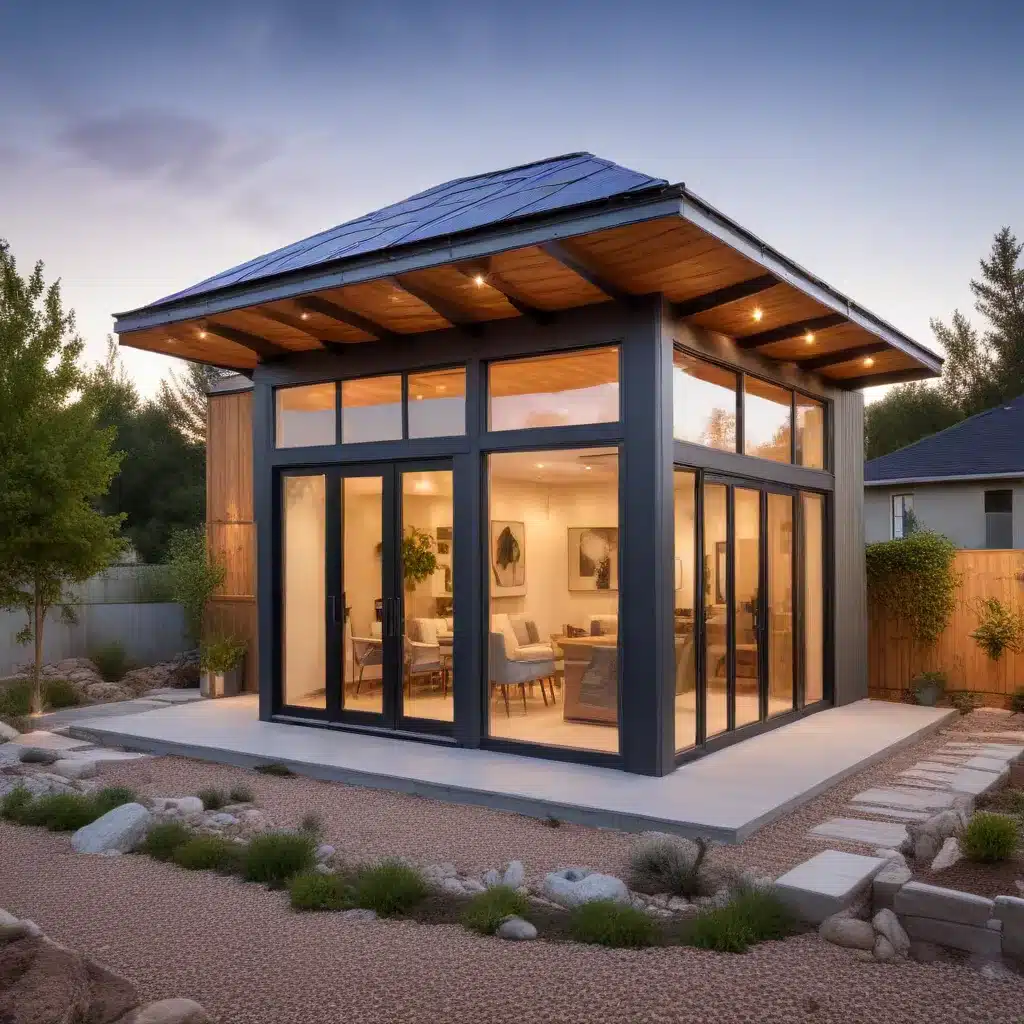
As an experienced home extension consultant, I’ve seen firsthand how homeowners are increasingly prioritizing sustainability and energy efficiency in their renovation projects. In this comprehensive guide, we’ll explore the key strategies and technologies that can transform your home extension into a model of sustainable living.
Energy Efficiency Considerations
When planning a home extension, energy efficiency should be a top priority. By incorporating the right insulation strategies, passive solar design, and renewable energy integration, you can create a space that not only looks great but also operates with remarkable efficiency.
Insulation Strategies
Proper insulation is the foundation of an energy-efficient home extension. Look for high-performance materials like spray foam, rigid foam boards, or advanced fiberglass batting that exceed local building code requirements. Carefully seal any air leaks around windows, doors, and other penetrations to prevent heat loss or gain.
Passive Solar Design
Harnessing the power of the sun is a brilliant way to reduce your energy demands. Strategically placed windows, skylights, and thermal mass materials can capture solar energy and distribute it throughout your home, reducing the need for mechanical heating and cooling. Work with a designer who specializes in passive solar principles to optimize your extension’s orientation, glazing, and shading elements.
Renewable Energy Integration
Integrating renewable energy sources, such as solar photovoltaic (PV) panels or a small wind turbine, can further enhance the sustainability of your home extension. These technologies can offset your reliance on grid-supplied electricity, lowering your carbon footprint and utility bills. Be sure to explore any available incentives or rebates that can make these investments more accessible.
Energy Storage Technologies
Pairing your energy-efficient home extension with advanced energy storage solutions can unlock even greater levels of sustainability. By storing excess energy, you can ensure that your renewable generation is fully utilized and reduce your dependence on the grid.
Battery Storage Systems
Lithium-ion or other advanced battery technologies can store electricity generated by your solar PV system or other renewable sources. These systems allow you to use the stored energy during peak demand periods or when the sun isn’t shining. Look for integrated battery storage solutions that seamlessly integrate with your home’s electrical system.
Thermal Energy Storage
In addition to electrical storage, thermal energy storage can play a vital role in optimizing your home extension’s energy management. Technologies like hot water tanks, phase-change materials, or underground thermal energy storage can capture and retain heat or cooling for later use, reducing the need for energy-intensive heating and cooling systems.
Hybrid Storage Solutions
Combining electrical and thermal storage technologies can create a comprehensive energy management system for your home extension. By integrating battery storage, thermal energy storage, and intelligent control systems, you can maximize the efficiency and self-sufficiency of your home.
Energy Management Systems
Tying all of these energy-efficient features together is the critical role of an advanced energy management system. These intelligent control algorithms and home automation integrations can optimize your home extension’s energy usage, reduce costs, and even interact with the grid.
Intelligent Control Algorithms
Sophisticated control algorithms can dynamically manage your home extension’s energy consumption, storage, and generation. These systems use real-time data, weather forecasts, and occupancy patterns to make informed decisions about when to draw from the grid, utilize stored energy, or activate renewable sources. This level of automation ensures that your home is operating at peak efficiency.
Home Automation Integration
Integrating your energy management system with smart home technologies, such as programmable thermostats, lighting controls, and appliance scheduling, can further enhance your home extension’s sustainability. These interconnected systems can work together to optimize energy use, reduce waste, and provide you with valuable insights into your home’s performance.
Grid Interaction Capabilities
In some cases, your home extension’s energy management system may be able to interact with the local utility grid, offering benefits to both you and the wider energy network. This could involve participating in demand response programs, selling excess renewable energy back to the grid, or even using your home’s storage capabilities to provide grid services, such as frequency regulation or voltage support.
Sustainable Construction Practices
Beyond the energy-efficient technologies and management systems, the construction process itself can also contribute to the overall sustainability of your home extension.
Environmentally-Friendly Materials
Seek out building materials that have a low environmental impact, such as recycled, renewable, or locally sourced options. This could include bamboo flooring, reclaimed wood, or insulation made from recycled cotton. These choices can significantly reduce the carbon footprint of your project.
Waste Reduction and Recycling
Implement a comprehensive waste management plan during the construction phase, focusing on reducing, reusing, and recycling as much material as possible. This not only minimizes the amount of waste sent to landfills but also creates opportunities for cost savings and resource conservation.
On-Site Renewable Generation
If feasible, consider incorporating on-site renewable energy generation, such as a small wind turbine or a ground-mounted solar PV array, to power the construction process and potentially provide ongoing energy for your home extension. This can further enhance the sustainability of your project.
By carefully considering these energy efficiency strategies, energy storage technologies, energy management systems, and sustainable construction practices, you can transform your home extension into a shining example of sustainable living. Remember, a little bit of forethought and investment in these areas can pay dividends in the long run, both for your energy costs and the environment.
For more information on how ABC Home can help you achieve your sustainable home extension goals, visit our home extensions service page. Our team of experienced consultants is here to guide you through every step of the process, ensuring that your dream home extension becomes a reality while prioritizing energy efficiency and environmental responsibility.
















